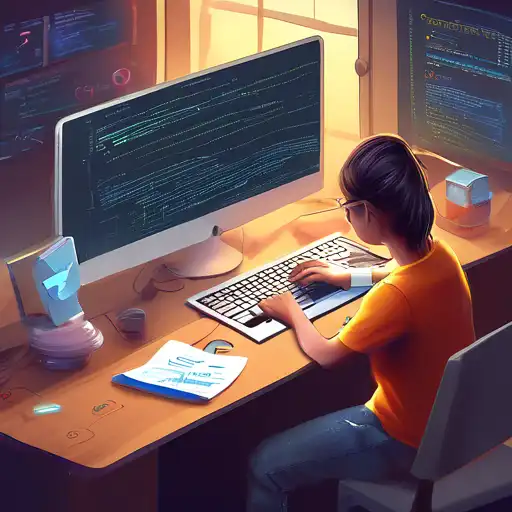Master Coding Quickly: 5 Effortless Steps for Beginners
Learning to code can seem daunting at first, but with the right approach, anyone can master the basics quickly. Whether you're aiming to switch careers or just want to understand the digital world better, these five simple steps will guide you through the process of learning coding fast.
1. Choose the Right Programming Language
Start by selecting a programming language that aligns with your goals. For beginners, languages like Python or JavaScript are recommended due to their simplicity and widespread use. Consider what you want to achieve with coding to make an informed choice.
2. Utilize Online Resources and Tutorials
The internet is a treasure trove of learning materials. Platforms like Codecademy, freeCodeCamp, and Udemy offer interactive courses that cater to all levels. Dedicate time daily to practice and apply what you learn through these resources.
3. Practice Coding Daily
Consistency is key when learning to code. Set aside at least an hour each day to write code, solve problems, or work on small projects. Regular practice helps reinforce concepts and improves your coding skills over time.
4. Join Coding Communities
Being part of a community can significantly enhance your learning experience. Join forums like Stack Overflow or GitHub to ask questions, share projects, and get feedback from more experienced coders. Collaboration and networking are invaluable resources.
5. Build Projects to Apply Your Knowledge
Applying what you've learned by building projects is one of the most effective ways to solidify your coding skills. Start with simple projects and gradually increase complexity as you become more comfortable. This hands-on approach ensures you understand the practical applications of coding.
Learning to code is a journey that requires patience, practice, and persistence. By following these five steps, you'll be well on your way to becoming proficient in coding. Remember, the goal is not just to learn but to understand and apply your knowledge in real-world scenarios.
For more tips on learning new skills, check out our guide on effective learning strategies.
